What’s the weather like outside? Is it raining? Wasps may seem intimidating no matter the weather, but are they deterred when it’s raining.
If you’re curious whether wasps can fly in the rain, you’ll want to read this comprehensive guide. In this article, we’ll answer common questions about wasps and their flying abilities. We’ll also provide some useful tips on how to keep yourself safe from these pesky critters. So whether you’re looking for information for a school project or just want to be better prepared in case of a wasp invasion, read on!
Table of Contents
Wasps in General
Most wasps have a parasitic or predatory lifestyle, meaning they feed on other insects or animals. For example, some species lay eggs inside caterpillars which then hatch into larvae that consume their host. Other wasps hunt for small prey such as flies and spiders. Some wasp species even act as pollinators for certain plants!
Wasps create nests made of chewed wood fiber mixed with saliva in order to protect their eggs and young. The nests are usually located in trees or other protected areas, although some species build them underground. Some wasps also live in colonies, where they share the responsibility of raising their young and caring for the nest.
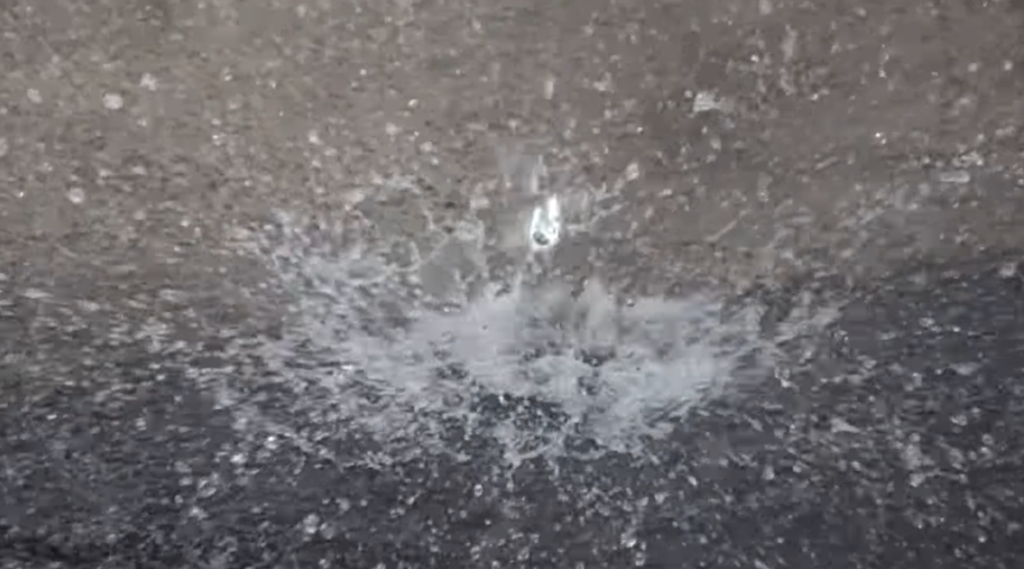
Wasps can be beneficial to humans as well; certain species help control populations of agricultural pests such as aphids, whiteflies, and mealybugs. However, some wasp species can be a nuisance when they sting or build nests near homes and buildings. Therefore it is important to learn more about them in order to find ways of coexisting peacefully with these insects. [1], [2], [3]
Are Wasps Impacted by a Rain?
You may wonder if wasps can fly in the rain. The short answer is yes, most wasps can fly in the rain for short distances. However, like other insects and animals, their ability to do so decreases as rainfall intensity increases.
Compared to flying during dry weather, wet weather brings a number of challenges for wasps. Rain affects air temperature and humidity levels, both of which are important factors for flight stability. In addition, heavy raindrops may act like obstacles that reduce visibility which may cause many nuisances for the wasps. Finally, water droplets on the wings affect lift force production by decreasing airflow over them due to increased surface drag forces.
Not only does this make it more difficult to forage food, but it can also be dangerous for wasps, especially smaller species. To make up for this, wasps may seek sheltered spots such as tree hollows or buildings to escape the rain.
This applies to all wasp species, including hornets, yellowjackets, and paper wasps. Because of all the trouble wasps go through to fly in the rain, the nests are expected to lose their workers at a very high rate. This is because the workers are exposed to the rain for a longer period of time, which can result in them feeling tired and exhausted.
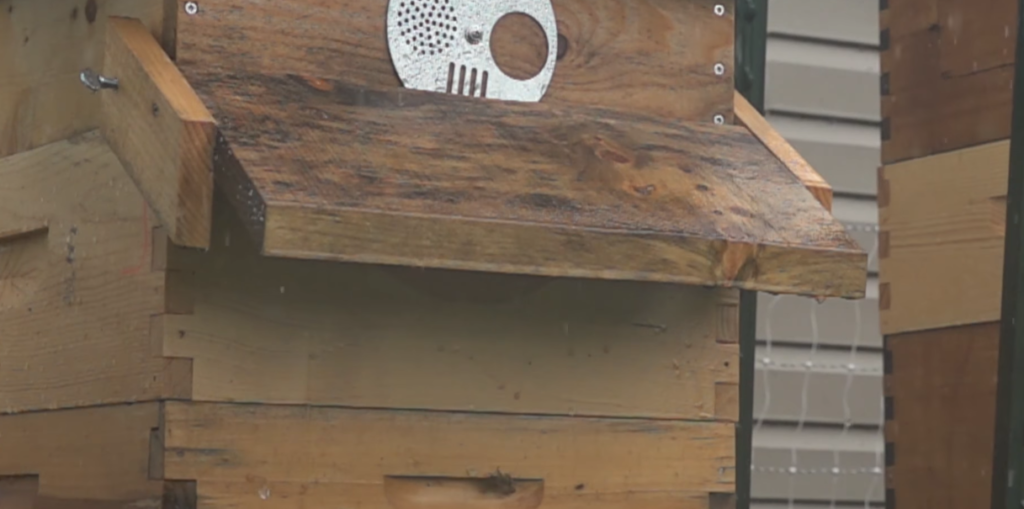
And because finding a food source is harder, they have nearly no means to replenish their exhaustion, as well as the food supply for their nest. In this way, bad weather can have a serious impact on wasp populations and nests. [1], [2], [3]
Can Water Kill Wasps
As you can see, both rain and winds aren’t the kindest forces to wasps. But what about water itself? Can wasps actually drown in water?
The answer is yes, but it usually takes a very long time for them to die this way. Wasps are able to survive submergence for up to a day because of the air trapped inside their exoskeleton and tracheal systems. In addition, some species may even be able to close off the spiracles (opening through which they breathe) when submerged.
However, if the wasp is submerged for too long or does not have enough air bubbles on its body, then it will eventually succumb to drowning.
It might come across as a surprise, but there actually are aquatic wasps which can survive underwater for long periods of time. This species, known as the water wasp (Ancylus fluviatilis), is able to survive up to three weeks under water in its pupal stage.
But what about rain? Can rain kill wasps? Well, it depends. A heavy downpour can’t directly kill the insects, but if it is strong enough to blow them away from their nests or hives, then they will suffer extreme fatigue. This could ultimately lead to death. Light rain, however, usually won’t cause enough damage to be fatal.
It’s also worth noting that some wasps make their nests in the ground and not hanging from trees or walls. A heavy rain poses a risk to these nests, as they can get flooded and the wasps can drown. This is why it’s important to keep an eye out for any water-filled holes that may be forming around your house or garden.
So be mindful of any new nests forming in wet areas and avoid them as much as possible. [1], [2], [3]
Where are the Wasps During the Rain?
But what happens to the wasps when it rains? Do they just hide somewhere until the weather improves or fly away to safer places?
The truth is quite simple – wasps usually tend to return to their nests when it starts raining. However, if the weather conditions are severe enough or the wasp nest is exposed to rain, then they will usually find shelter in cracks and crevices in nearby trees, walls or rocks. In such cases, they do not fly very far away as they need to return home quickly when the weather improves. [1]
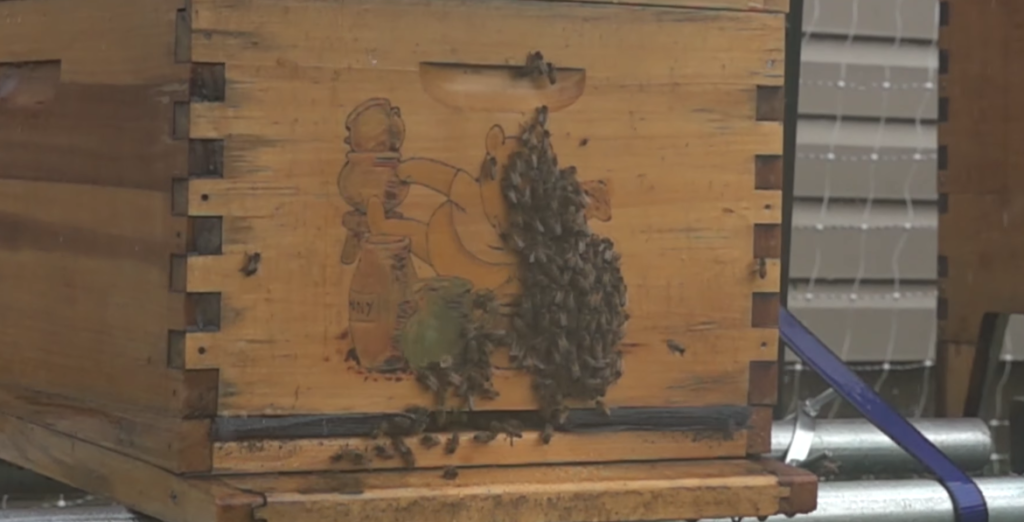
Are Wasp Nests Damaged by Rain?
This leads us to another question – are wasp nests damaged by rain? As we already mentioned, certain species who build their nests in the ground certainly can suffer from the effects of rain. However, overhead nests in trees or eaves of buildings are generally safe from damage.
The reason why wasp nests are generally safe from rain damage is because they are built to be waterproof. Wasps use a combination of saliva and chewed wood pulp which both contain natural waxes, allowing them to create a waterproof barrier that keeps the nest dry even when it’s raining. Even if a few drops get soaked, they are unlikely to get past the outer layer of the nest and cause any damage.
What else makes wasp nests so resistant to the rain is the fact they have only a single opening that is located at the very bottom. This allows for the water to quickly run off and away from the wasp nest rather than be absorbed by it.
It’s important to note that the reasons as to why wasps avoid flying in the rain aren’t exactly confirmed for all species, but it’s a fact that they can’t handle rain for long periods of time and the same goes for wind. [1]
What are the Ideal Conditions for Wasps
As we’ve discussed, rain and flooding can be dangerous for wasps. But what about other conditions? What kind of environment do wasps prefer to live in?
Well, the best climate for wasps is one that is warm but not too hot and dry. They don’t like their environment to get too cold either. Wasps also need a place with plenty of food sources and protection from predators.
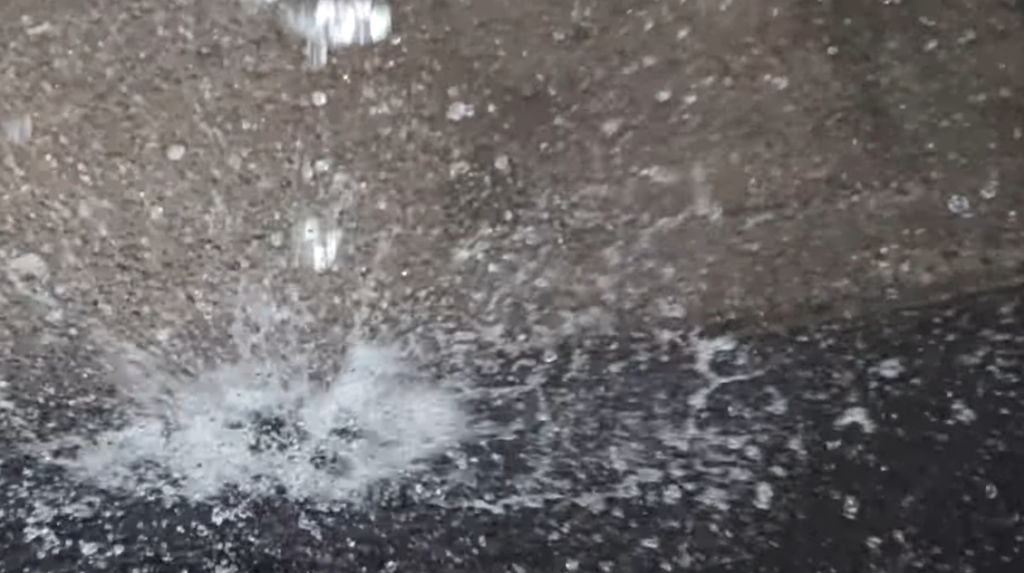
In terms of humidity, wasps can handle both humid and dry climates fairly well. In fact, many species have adapted to survive in places with higher humidity levels than others. This means that tropical areas aren’t safe from wasps – they can thrive there too.
When it comes to wind, wasps are adapted to deal with both light and strong winds. However, gusty conditions can be problematic for them as it may blow away their nests or hives. As mentioned earlier, this can cause serious dehydration and even death if the wasps get separated from their nests.
What to Do If You Come Across a Wasp Nest
Be it rainy outside or otherwise, wasps can become dangerous when they feel threatened. It’s important to take the necessary precautions if you come across a nest or hive. While a single sting can rarely cause death, their venom can cause severe reactions and allergic reactions in some people. For this reason, caution is key.
Avoid approaching the nest
The first and most important step is to avoid getting too close to a wasp nest. If you’re near one, be sure to give the wasps plenty of space. Wasps can sense movement and vibrations from afar, so it’s best not to disturb them in any way.
If the nest is located in an area you need access to (such as on your property or in a garage) then you may want to call a professional pest control expert.
Observe the nest first
If you notice a wasp nest near your home, the best thing to do is observe it from a safe distance. This will help you determine where it is and if there are any potential dangers. If the nest is located in an area that can be easily accessed, then consider calling pest control professionals to have them safely remove it.
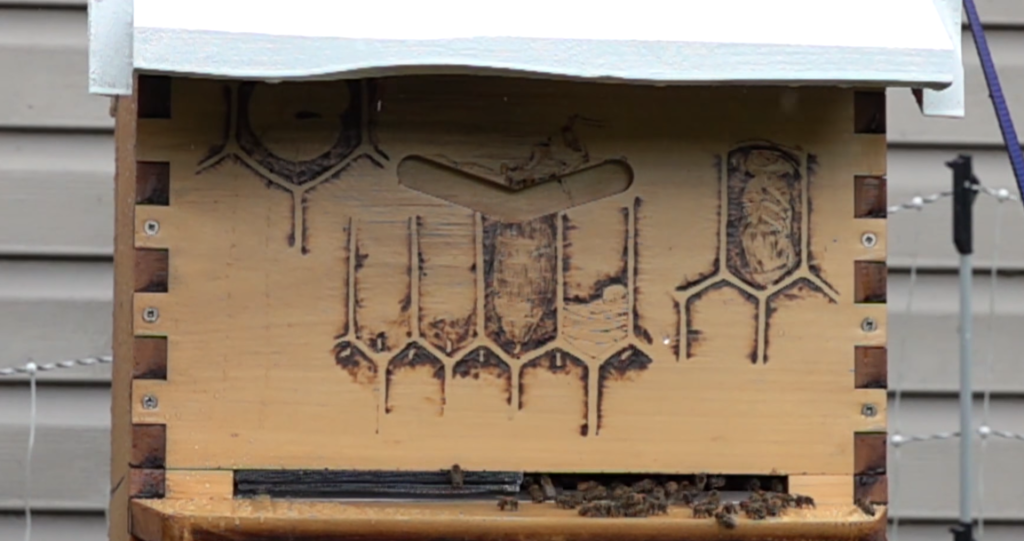
It’s also important to take note of how many wasps are present in the nest. Wasps tend to become more aggressive as their numbers increase, so if you see a large number of them flying around, then leave the area immediately and call for help.
Keep in eye of nearby wasps
And not only wasps around the nest, but also those that may be flying around your home. If you see wasps frequenting the same area, then it’s a sign that there could potentially be a nest nearby. Keep an eye out for any signs of a nest and if you do find one, call professional help immediately.
Call a professional pest control company
If you discover a wasp nest on your property, it’s best to call a professional pest control company. These experts are trained in safely and humanely removing nests, so they will know how to handle the situation without endangering anyone or agitating the wasps further.
A good pest control expert will also be able to provide valuable advice or tips on how to protect yourself from wasps in the future. This can include methods for preventing them from entering your home, such as sealing off any potential entry points like windows and doors.
Why you should never eliminate the nest by yourself
Most people have been stung at least once in their life and it’s no fun. Wasps can sting multiple times and the venom from a wasp’s sting is quite powerful, so it’s not something to mess around with. If you see an active nest of wasps, don’t try to eliminate them on your own. Even if you manage to get rid of the nest itself, there may still be live wasps in the area that could cause harm or further damage to your property.
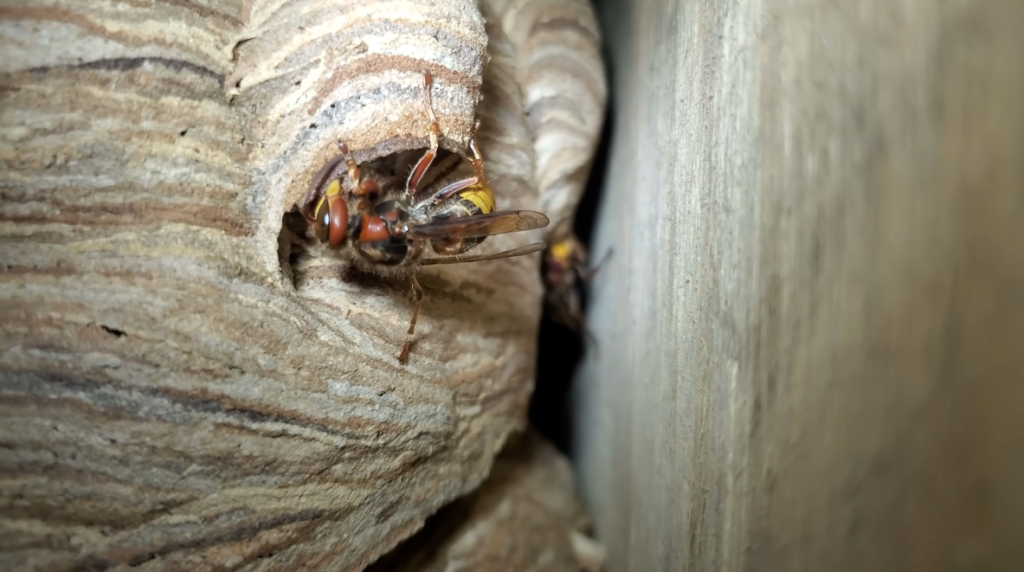
This means it’s extremely important to call a professional pest control company if you encounter a nest on your property. The experts will know the best way to safely and humanely remove the nest.
One last tip is that it’s always better to be safe than sorry when dealing with wasps. If you are unsure of how to proceed or if you think a nest may be present, don’t hesitate to call for help right away. Taking precautions can mean the difference between being safe and having an emergency situation on your hands. [3]
FAQ
What kills wasps instantly?
It might come to you as a surprise but killing wasps instantly isn’t as easy as it sounds. While some methods, such as spraying them with insecticide solutions or attempting to swat them may be effective in killing one or two, they are not reliable for getting rid of wasp infestations. The most effective way to kill wasps immediately is by using a professional exterminator who can treat the nest and nearby areas with a specialized insecticide that will quickly kill the wasps.
You can also drown them, however, this is not a particularly efficient way of killing them as they can breathe underwater thanks to their spiracles. If you do want to use the drowning method, mixing water with soap is the best option as it can suffocate them.
Will yellow jackets come out in the rain?
Yellow jackets, like many other wasps, will not generally fly in the rain because it is difficult to navigate in wet conditions. What makes rain especially awful for yellow jackets, though, is that their nests are in the ground and can be flooded by heavy downpours. Yellow jackets will usually remain sheltered in their nests during a rain storm and wait for it to pass before coming out and resuming their usual activities.
Flying in the rain is not only difficult for yellow jackets but most other species of wasps as well. Wasps rely on their wings to fly and navigating becomes increasingly difficult in wet conditions. The rain can cause the wings to become weighed down by the water, making it hard for them to stay aloft or even take off.
To further complicate matters, rain makes it harder for wasps to find food as food sources may be scarce in wet conditions. This means that wasps will typically wait until the rain stops before venturing out in search of food, when conditions are more conducive to their survival.
What weather are wasps most active?
Wasps are generally most active on warm, sunny days. They are typically less active and sluggish in colder temperatures and during rainy weather. The reason for that is because the cold and rain can make it difficult for them to fly, as they need warmth from the sun to keep their wings warm. Additionally, wasps are less likely to be looking for food on rainy or overcast days. Wind too can affect the activity of wasps, as it can make it harder for them to fly and stay aloft. Wasps usually prefer calmer conditions as they are more conducive to their survival needs.
Wasps also can’t stand particularly hot weather either as this can cause their nervous system to overheat and shut down. On days with high temperatures, wasps may become more sluggish or even dormant in order to avoid overheating. In any case, it’s best to be aware of the weather conditions if you are trying to avoid encounters with wasps as they tend to be most active on warm sunny days.
When should you avoid wasps?
Wasps are most active and aggressive during the warmer months of the year when they search for food and nesting sites. If a wasp feels threatened or senses danger, it may become defensive and attack by stinging as a form of self-defense mechanism.
The best way to avoid wasps is to stay away from potential nesting sites, such as hollow trees or abandoned buildings. Avoid sweet smelling perfumes, scented lotions, colognes, hair sprays, soaps and other fragrances that attract wasps. Additionally, bright clothing should also be avoided since this can draw the attention of these insects. Lastly, try not to make sudden movements when near wasps as this can also trigger them to attack.
Can wasps remember human faces?
Yes, wasps have the ability to remember human faces. This is an important defensive mechanism for them because they can recognize a potential threat and react accordingly. Wasps are able to remember a person’s face even when they come into contact with them multiple times. While it is not exactly clear how long a wasp can remember a face, some studies suggest that this could be up to several months or even years.
Wasps have special sensory organs located on their antennae which help them detect certain odors and other cues in their environment that may indicate danger. These sensors allow wasps to identify faces of people who may have caused them harm in the past so that they can avoid being near those people again in the future.
Useful Video: Honey Bees Flying In The Rain Weather does NOT stop them!
Conclusion
Wasps are seen as intimidating and dangerous pests, but they are still living creatures with certain abilities and limitations. While it is true that wasps can’t fly in the rain, they tend to avoid it.
And there are plenty of reasons for it: wasps can become wet and lose control of their wings, they are prone to getting swept up in strong winds and it is much harder for them to find food in wet conditions.
This doesn’t mean wasps will instantly die from moisture however, in fact they can even survive being drowned in water for a short period of time.
However, if the wasp nest is damaged or drowned due to water damage, it is likely that the wasps will find another place to build a new one and move away from the area. This also means you need to be very careful when coming across a wasp nest, as the wasps may be more aggressive and willing to sting if they perceive a threat.
In this article we discussed why wasps are able to fly in the rain and why they tend to avoid it. We also provided trivia on whether rain affects wasps and their nests and the actions you need to take if you want to avoid getting stung by wasps.
Overall, it is important to remember that even rain won’t prevent you from coming across wasps. While they may be more cautious and try to avoid wet conditions, this doesn’t mean that wasps won’t come out in the rain.
We hope this article has answered all your queries on whether wasps can fly in the rain! We wish you a happy summer free of pesky pest invasions!
References
- https://pestabc.com/wasps-rain/
- https://www.pestcontrolgurus.com/can-wasps-fly-in-rain/
- https://www.smashd.co.nz/wasps-flying-around/
- https://animals.mom.com/climate-wasps-live-in-9780.html

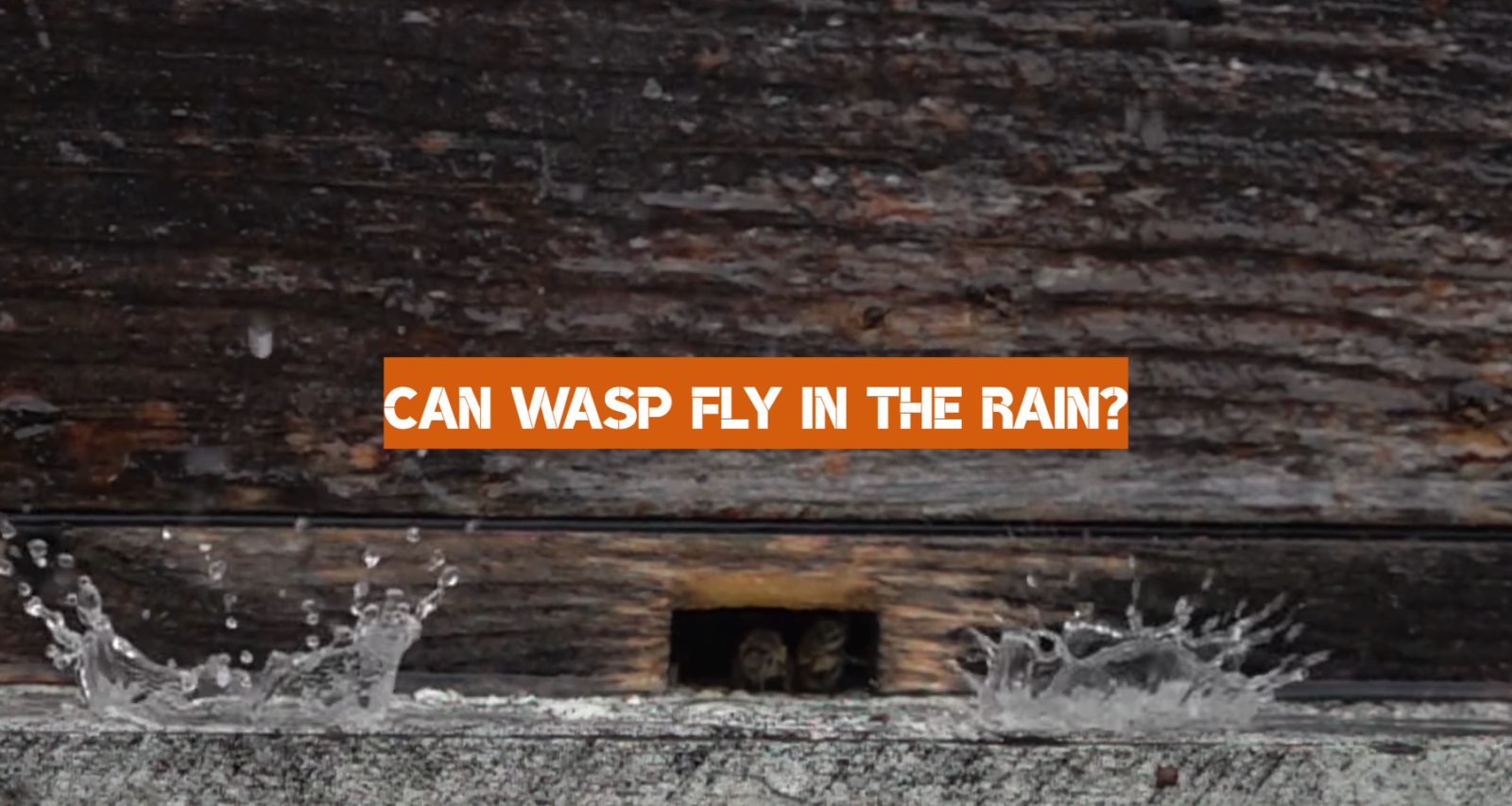
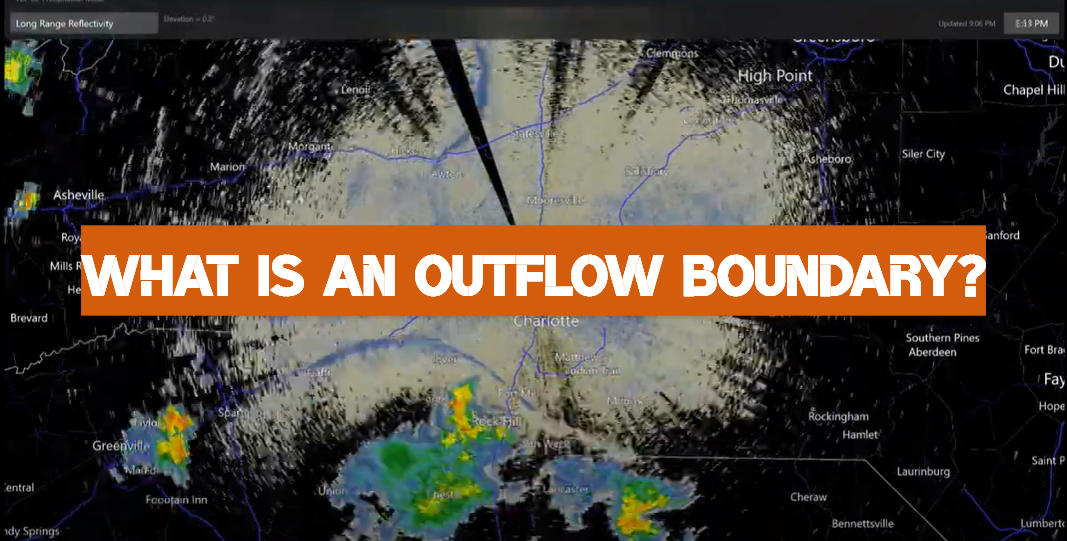



Leave a Reply